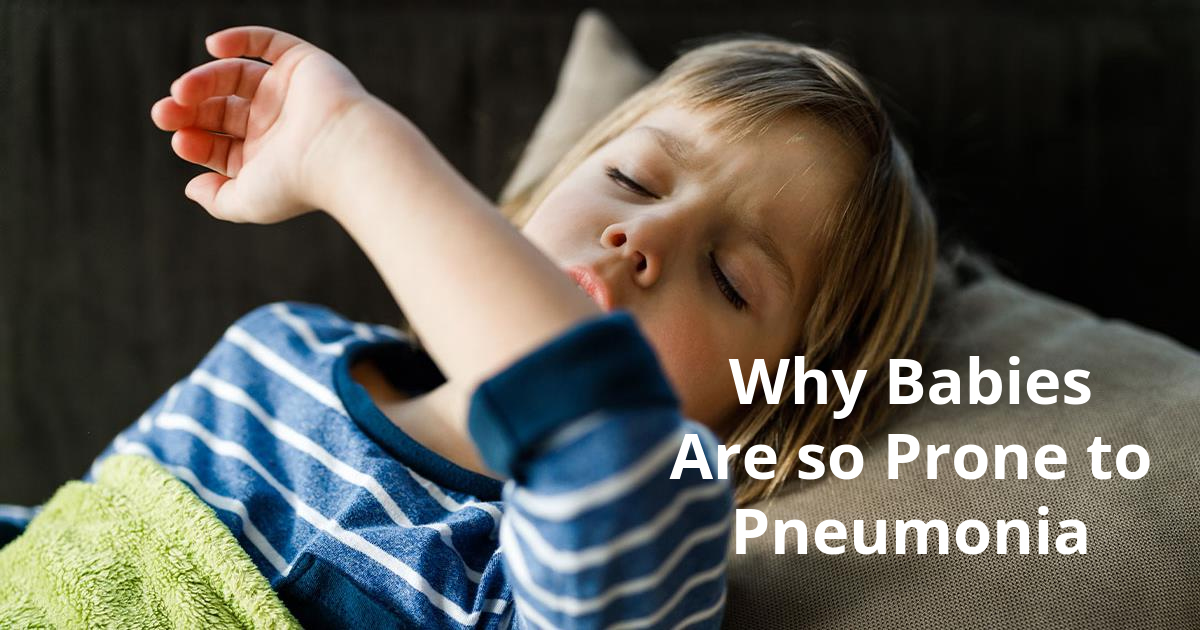Pneumonia, the world’s most deadly communicable disease, is the leading cause of death of babies worldwide.
People often associate deadly pneumonia with the elderly. But, according to the United Nations International Children’s Emergency Fund, no other illness takes the lives of babies as many as pneumonia does. In fact, it kills more than 800,000 children, including newborns who are especially vulnerable to infection.
Going by the data, pneumonia kills a child every 39 seconds. And chest infection specialist Manchester says that most of these deaths are preventable. Want to know how? Keep reading.
Pneumonia – Definition and Causes
Pneumonia is a lung infection that primarily affects the alveoli (the air sacs). It is often caused by viruses or bacteria and less commonly by parasites and fungi.
Bacteria
The pneumonia specialist Manchester informs that community-acquired pneumonia is caused by bacteria. Bacterias that cause this deadly infection are Streptococcus pneumoniae, Haemophilus influenzae, Chlamydophila pneumoniae, Mycoplasma pneumoniae, Staphylococcus aureus, Moraxella catarrhalis, Legionella pneumophila, Streptococcus pneumoniae (DRSP), and methicillin-resistant Staphylococcus aureus (MRSA).
Viruses
In children, viruses account for about 15% of pneumonia cases. Commonly implicated agents include influenza virus, rhinoviruses, coronaviruses, adenovirus, parainfluenza, and respiratory syncytial virus (RSV). A new set of viruses, the Herpes simplex virus, is also known to cause pneumonia in newborns.
Fungi
Pneumonia caused by fungi is uncommon. It occurs in people with a compromised immune system due to complications like AIDS and other medical problems. Fungal pneumonia is often caused by Blastomyces, Cryptococcus neoformans, Histoplasma capsulatum, Coccidioides immitis, and Pneumocystis jiroveci (pneumocystis pneumonia, or PCP).
Parasites
Parasitic pneumonia commonly affects immunodeficient individuals (esp children). The pneumonia specialist near me informs that parasites like Strongyloides stercoralis, Toxoplasma gondii, Plasmodium malariae, and Ascaris lumbricoides can affect the lungs. These organisms enter the human body via an insect vector or through direct contact with skin or ingestion.
The age Group most Vulnerable to Pneumonia
Anyone from any age group can get pneumonia. The chest infection specialist Manchester informs that children, especially newly born, are at a significantly higher risk of getting pneumonia. Children who more prone to fall prey to this deadly, contagious disease include:
- Newborns not being breastfed
- Children exposed to cigarette smoke and other toxic air pollutants
- Children suffering from malnutrition due to poverty
- Children with chronic illnesses, like lung or heart disorders
- Children with asthma
- Infants born prematurely
- Children with a weakened immune system due to complications like HIV.
The Symptoms of Pneumonia
The symptoms associated with this life-threatening infection vary depending on the disease’s cause and the child’s age. The common symptoms include:
- Cough
- Fever
- Rapid breathing
- Difficulty in breathing (producing grunting or wheezing sounds)
- Blue-tinged skin (in extreme cases)
- Unwillingness to drink
- Convulsions
- Ongoing vomiting
- Decreased level of consciousness (severe case)
Children with bacterial pneumonia get sick quite fast and develop rapid breathing and high fever.
Children with viral pneumonia may start showing symptoms gradually, which are comparatively less severe. Wheezing is a common symptom in such a case.
If your baby shows any of the symptoms mentioned above, rush to the best baby cough doctor in Manchester to avoid further complications.
Diagnosis in Children
Doctors may diagnose pneumonia through a physical examination, checking for abnormal breathing patterns, chest indrawing, etc. Sometimes, the doctors may order blood tests, chest x-ray, tests for bacterias in the mucus produced by cough or tests for viruses in nasal secretions.
Pneumonia Treatment
Antibiotics by mouth, proper rest, adequate fluids, and simple analgesics generally suffice for complete resolution. However, if pneumonia doesn’t improve with home treatment, symptoms worsen, or any complication occurs, hospitalization may be required. Children with the following complications need to be hospitalized immediately:
- Respiratory distress
- Oxygen saturation of less than 90%
- Lung infections spread to the bloodstream
- Immunodeficiency
- Continuous vomiting (leading to dehydration)
Bacterial pneumonia can be treated with antibiotics. Children suffering from bacterial pneumonia should be given their first dose of antibiotics as soon as possible. Antibiotic choice depends initially on the affected person’s characteristics, such as age and underlying health conditions.
However, increased use of antibiotics may result in the development of antimicrobial-resistant strains of bacteria. Therefore, it is recommended to strictly follow the directions provided by your doctor.
Pneumonia caused due to influenza viruses (influenza A and influenza B) can be treated with antiviral medicines. However, no specific antiviral medications are available to treat pneumonia caused by viruses like SARS coronavirus, hantavirus, adenovirus, and parainfluenza virus.
The medications used to treat pneumonia caused due to influenza viruses are most beneficial when started within 48 hours of the outset of symptoms.
Pneumonia Prevention
- Vaccination provides effective prevention against certain kinds of viral and bacterial pneumonia in children. Vaccinating babies under the age of 2 against Haemophilus influenzae, Streptococcus pneumoniae, pertussis, varicella, and measles is recommended.
- Reducing indoor air pollution and smoking cessation can reduce the risk of pneumonia.
- Appropriate treatment of underlying issues such as HIV, malnutrition, etc., may reduce the risk of pneumonia.
- Testing pregnant women for Chlamydia trachomatis and Group B Streptococcus and administering antibiotics (if required) reduces pneumonia rates in infants.
According to the best baby cough doctor in Manchester, if proper preventive measures are set in motion globally, the children’s mortality rate may get reduced by 400,000. In addition to that, if suitable treatments are made accessible to everyone, children’s deaths may get reduced by 600,000.
Consulting pneumonia specialist Manchester
In case of complications due to pneumonia, consulting an expert professional with years of experience is your best bet for recovery.
Child Lung Clinic aims to provide comprehensive clinical consultation and care for babies with lung problems. The doctors at the clinic specialize in diagnosing and treating babies with pneumonia. Get in touch with the clinic to provide your child with the best possible treatment.









